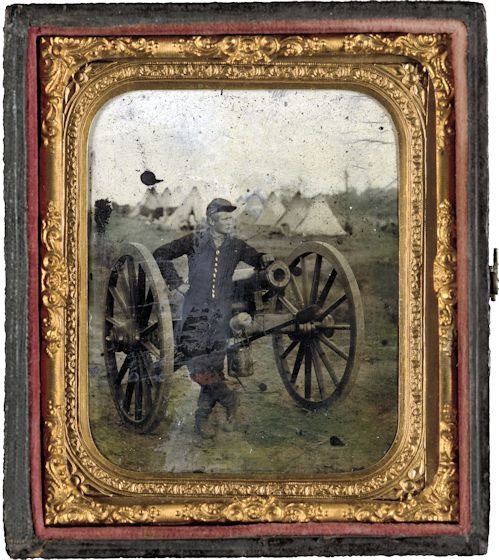Friday night, January 23d.
I am particularly happy to-day, for we have just heard from Brother for the first time since last July. And he is well, and happy, and wants us to come to him in New Orleans so he can take care of us, and no longer be so anxious for our safety. If we only could! —To be sure the letter is from a gentleman who is just out of the city, who says he writes at Brother’s earnest request; still it is something to hear, even indirectly. One hundred and fifty dollars he encloses with the request that mother will draw for any amount she wishes. Dear Brother, money is the least thing we need; first of all, we are dying for want of a home. If we could only see ours once more!
During this time we have heard incidentally of Brother; of his having taken the oath of allegiance —which I am confident he did not do until Butler’s October decree — of his being a prominent Union man, of his being a candidate for the Federal Congress, and of his withdrawal; and finally of his having gone to New York and Washington, from which places he only returned a few weeks since. That is all we ever heard. A very few people have been insolent enough to say to me, “Your brother is as good a Yankee as any.” My blood boils as I answer, “Let him be President Lincoln if he will, and I would love him the same.” And so I would. Politics cannot come between me and my father’s son. What he thinks right, is right, for him, though not for me. If he is for the Union, it is because he believes it to be in the right, and I honor him for acting from conviction, rather than from dread of public opinion. If he were to take up the sword against us to-morrow, Miriam and I, at least, would say, “If he thinks it his duty, he is right; we will not forget he is our father’s child.” And we will not. From that sad day when the sun was setting for the first time on our father’s grave, when the great, strong man sobbed in agony at the thought of what we had lost, and taking us both on his lap put his arms around us and said, “Dear little sisters, don’t cry; I will be father and brother, too, now,” he has been both. He respects our opinions, we shall respect his. I confess myself a rebel, body and soul. Confess? I glory in it! Am proud of being one; would not forego the title for any other earthly one!
Though none could regret the dismemberment of our old Union more than I did at the time, though I acknowledge that there never was a more unnecessary war than this in the beginning, yet once in earnest, from the secession of Louisiana I date my change of sentiment. I have never since then looked back; forward, forward! is the cry; and as the Federal States sink each day in more appalling folly and disgrace, I grow prouder still of my own country and rejoice that we can no longer be confounded with a nation which shows so little fortitude in calamity, so little magnanimity in its hour of triumph. Yes! I am glad we are two distinct tribes! I am proud of my country; only wish I could fight in the ranks with our brave soldiers, to prove my enthusiasm; would think death, mutilation, glorious in such a cause; cry, “War to all eternity before we submit.” But if I can’t fight, being unfortunately a woman, which I now regret for the first time in my life, at least I can help in other ways. What fingers can do in knitting and sewing for them, I have done with the most intense delight; what words of encouragement and praise could accomplish, I have tried on more than one bold soldier boy, and not altogether in vain; I have lost my home and all its dear contents for our Southern Rights, have stood on its deserted hearthstone and looked at the ruin of all I loved—without a murmur, almost glad of the sacrifice if it would contribute its mite towards the salvation of the Confederacy. And so it did, indirectly; for the battle of Baton Rouge which made the Yankees, drunk with rage, commit outrages in our homes that civilized Indians would blush to perpetrate, forced them to abandon the town as untenable, whereby we were enabled to fortify Port Hudson here, which now defies their strength. True they have reoccupied our town; that Yankees live in our house; but if our generals said burn the whole concern, would I not put the torch to our home readily, though I love its bare skeleton still? Indeed I would, though I know what it is to be without one. Don’t Lilly and mother live in a wretched cabin in vile Clinton while strangers rest under our father’s roof? Yankees, I owe you one for that!
Well! I boast myself Rebel, sing “Dixie,” shout Southern Rights, pray for God’s blessing on our cause, without ceasing, and would not live in this country if by any possible calamity we should be conquered; I am only a woman, and that is the way I feel. Brother may differ. What then? Shall I respect, love him less? No! God bless him! Union or Secession, he is always my dear, dear Brother, and tortures could not make me change my opinion.











